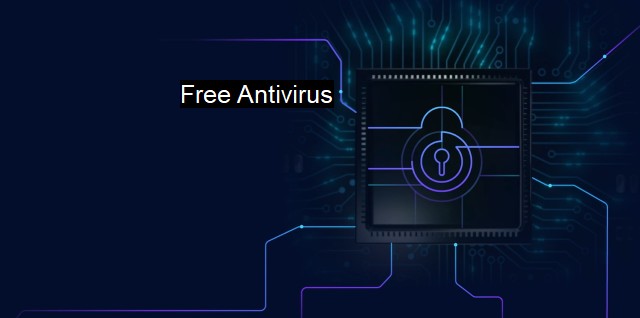What are Free Antivirus?
Exploring the Pros and Cons of Free Antivirus Software in Cybersecurity Today
Free Antivirus represents free-to-use software designed to detect and eliminate viruses and malicious activities from computer systems. This software is available for individuals and businesses looking to safeguard their computers and digital information at no cost. As cybersecurity threats rapidly evolve each day, antivirus software, especially free versions, are highly adopted across the world, shielding computers against viruses, malware, spyware, and other malicious attacks.Free antivirus operates by scanning every file users access, scrutinizing email attachments, web downloads, and software installations for known and unfamiliar, suspicious threats. It compares the feature lists of new files against known viruses, isolating dangerous files, and subsequently eliminating them before they broadcast within the systems.
Modern free antivirus solutions encompass far more complex functions than simply hunting for known viruses. Many can even detect and eradicate other forms of malicious software – often termed malware – which include spyware, adware, trojan horses, worms, and ransomware. They can also carry out heuristic analysis, discerning new, unidentified viruses by studying their behaviors and file structures. Heuristic scanners can provide a strong secondary line of protection when dealing with new cyber threats, which traditional antivirus scanners may fail to detect due to lack of a threat database.
An indispensable aspect of cybersecurity, antivirus, especially free varieties, aid users from an extensive array of security threats such as phishing attacks, identity thefts, spam, pop-ups, and inappropriate content. Besides acting as a primary line of defense in blocking destructive files and stopping virus incursion, they also encompass peripheral security features like password managers, secure web browsing, and network vulnerability scanning.
Free antivirus software is typically a stripped-down version of the full product, often lacking certain premium features. These can range from no chorus upgrades and firewall protection to absent email security and superior customer support. The fact that they are updated less regularly means that the threat database often lags behind the freshest viruses. Although it doesn't apply to every offering, free antivirus providers may require sharing minimal system or personal data when implementing their software. For instance, anonymous program data can help developers refine their software and, at times, help diagnose system-specific issues
That said, the drawbacks should not deter individuals and small businesses from considering free antivirus software for their cybersecurity needs. The top-notch free antivirus packages provide robust and effective protection against most prevalent types of malware. They are crafted to safeguard against the vast majority of common threats, ensuring computers stay virus-free.
Free antivirus software often acts as a stepping stone to introducing users to the world of cybersecurity. By providing basic protection, these programs offer the chance for users—particularly novice users—to familiarize themselves with antivirus functions without making an upfront investment.
Free antivirus claims a seminal role. Its target is, and will always be, to protect the electronic sphere from exceedingly complex digital threats. Free antivirus, despite pared-down functionality and imperfect protection, presents an essential line of defense and has a vital role in the cybersecurity dynamic. It safeguards users navigating cyberspace, shielding valuable data from the clutch of ever-growing cyber threats.
On the whole, free antivirus can offer solid protection for users on a budget. for a more comprehensive and robust security protection, users might consider investing in premium antivirus software. This way, users don't compromise their system and data safety, adding an extra layer of security and peace of mind in the face of the fluctuating landscape of digital threats.

Free Antivirus FAQs
What is a free antivirus software?
A free antivirus software is a cybersecurity program that can be downloaded and used without cost to protect your computer against viruses, malware, spyware, and other online threats.Is free antivirus software reliable?
Yes, free antivirus software can provide a basic level of protection for your computer. However, it may not offer all the features and benefits of paid antivirus software. It is important to research and choose a reputable free antivirus program with positive reviews and updates to stay protected against the latest threats.Can I rely on a free antivirus software alone?
While free antivirus software can provide some level of protection, it is not recommended to rely on it alone. Paid antivirus software often offers more advanced features, such as real-time protection, firewall, and parental controls. Additionally, it is important to practice safe online behavior and avoid downloading suspicious files or visiting unsecured websites.How often should I update my free antivirus software?
It is important to update your free antivirus software regularly to ensure it is effective against the latest threats. Most free antivirus programs offer automatic updates, which should be enabled. Additionally, you can manually check for updates and schedule regular scans of your computer.| | A | | | B | | | C | | | D | | | E | | | F | | | G | | | H | | | I | | | J | | | K | | | L | | | M | |
| | N | | | O | | | P | | | Q | | | R | | | S | | | T | | | U | | | V | | | W | | | X | | | Y | | | Z | |
| | 1 | | | 2 | | | 3 | | | 4 | | | 7 | | | 8 | | |||||||